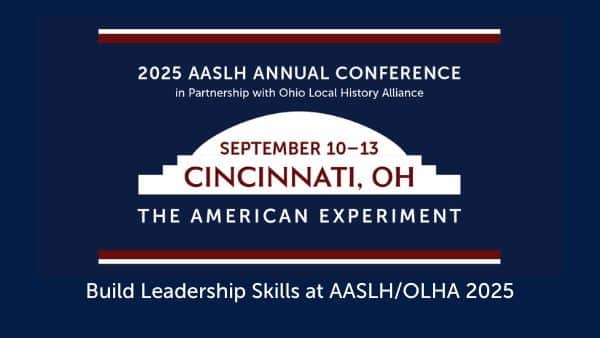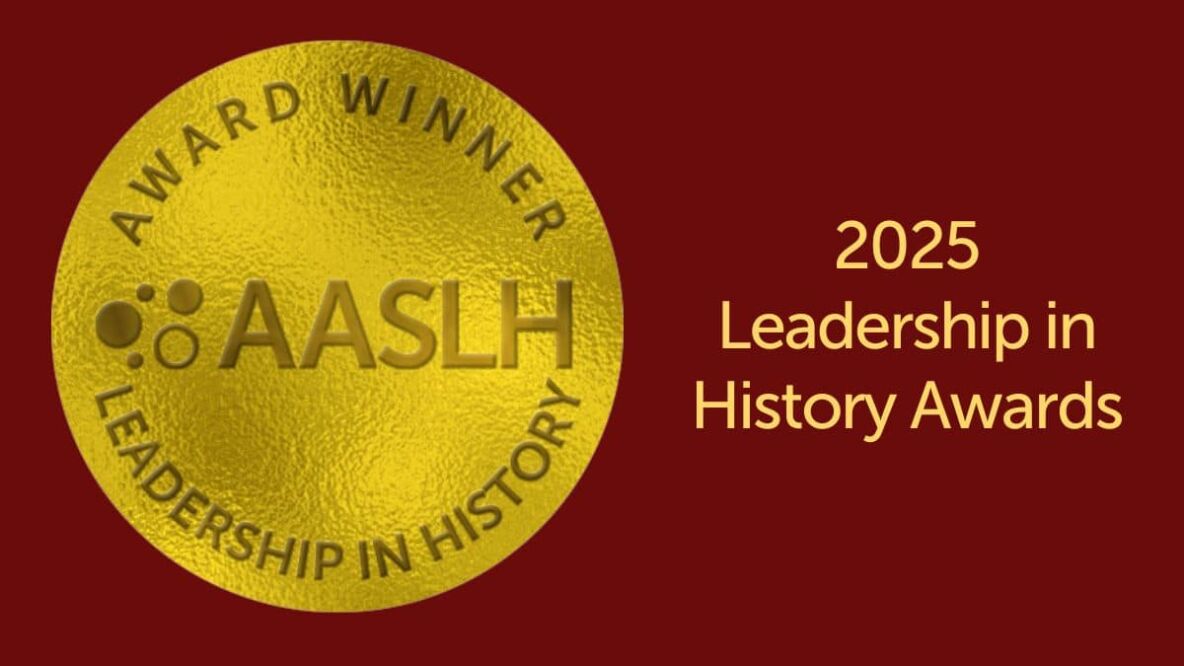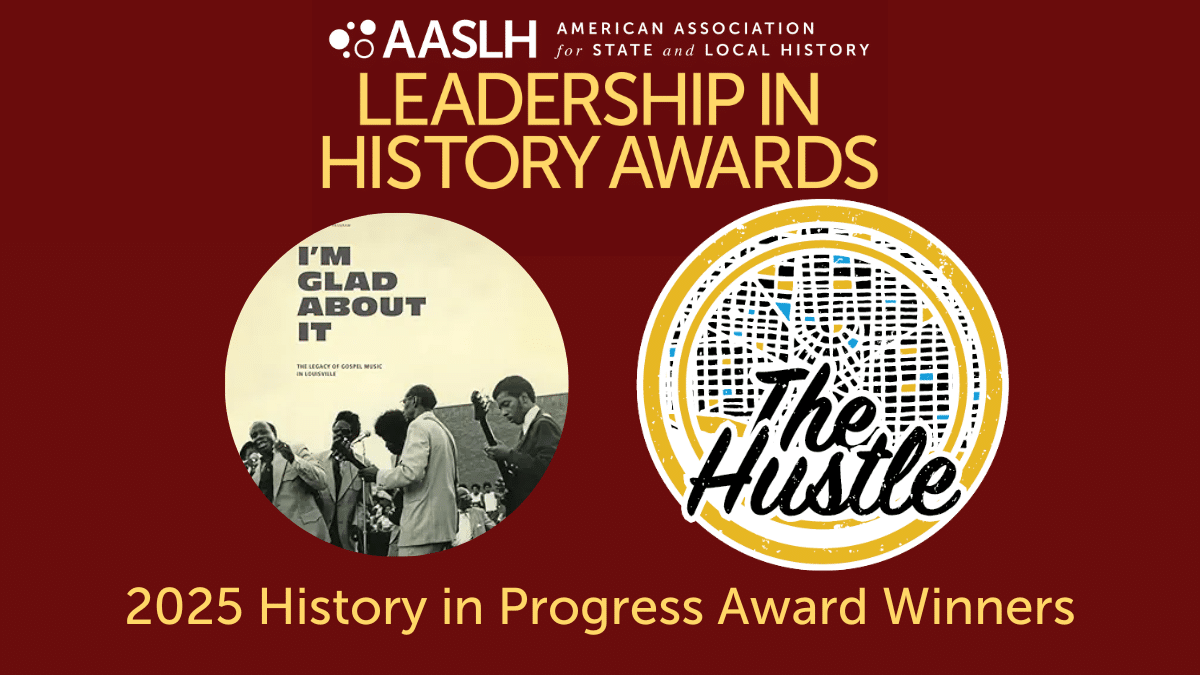
By Schillica Howard, Banneker-Douglass Museum, Annapolis, MD
When I learned about the Douglas Evelyn Scholarship for Minority Professionals, I knew that I had to apply. I am an emerging museum professional running two departments (collections and exhibitions) in a small museum. Every opportunity for professional development is important to me, but there is no line item in the museum’s budget for professional development. I was elated when I learned that I won the scholarship because I would have been unable to attend the conference without it.
AASLH 2019 was an excellent conference experience. I was a sponge on a mission, ready to soak up every possible piece of information that I could. The full-day workshop “Digital Preservation on a Shoestring Budget” was informative and motivating. I was able to draft a digital preservation policy for my museum, learn digital preservation workflows, and do hands-on practice with those workflows. I have already put this knowledge into practice within the collections department to ensure that a large digitized collection of print photographs is properly preserved. The session “Exploring Digital Solutions to Preserve and Share Our Heritage” provided excellent methods for crowdsourcing collections, a topic that I am interested in for a personal project. The presenters from the Center for Knit and Crochet happily answered all of my excited questions. I learned a great deal about prototyping for exhibit design in the “Why Wait for Feedback?” session. As the sole member of the exhibitions department, I was unsure of how to engage audiences prior to exhibit openings but knew that doing so was critically important. The presenters offered various examples and spoke with me personally about prototyping methods for my specific situation.
While my overall experience was remarkable, there were some areas for improvement. There were accessibility issues in some sessions where people with low-vision and hearing struggled, and conversations around the inaccessibility of conference costs were common among the attendees of color I met. In the session on reparations, a conversation about anti-blackness was derailed by moments of white fragility. I noticed throughout the conference the racial disparity among attendees. In these moments, I saw the need for the Douglas Evelyn Scholarship for Minority Professionals. I was happy to be in the room participating in these conversations, but the need for equity was apparent.
I left the conference feeling inspired, motivated, and equipped to make progress at my institution. I met people who shared my questions and concerns, and I knew I wasn’t alone. I met people with answers and advice, and I knew that a support network was there to help. I also saw the urgent need for the scholarship I received and for change in this field. I am looking forward to seeing those changes, though, and am excited to continue to learn and develop as a museum professional.



